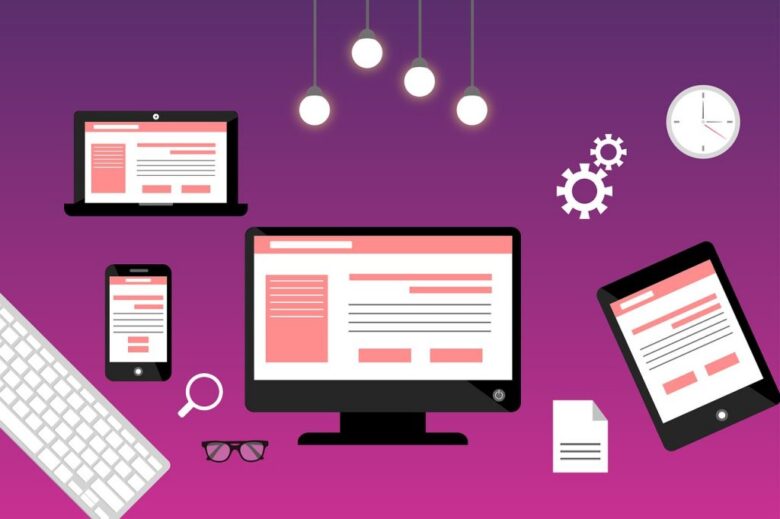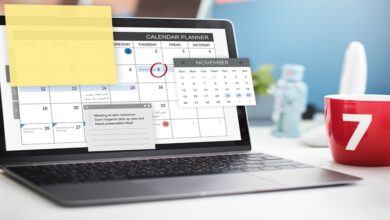
Everything You Need To Know About Going Self-Employed For The First Time – 2024 Guide
While many have soldiered on with their current employment in the midst of the coronavirus pandemic, the reality is that a change has been either forced or welcomed for some.
Redundancies and job cuts might have led some workers down the path of self-employment, with activity on make-it-and-sell-it sites such as Etsy and Shopify increasing exponentially.
For others, the pandemic may have led to plenty of thinking time, and a career ‘pause’ may just have created a spike in those thinking that striking it out on their own as a self-employed contractor might be the best choice.
It’s possible that you may have returned to self-employed status for the first time in a long time recently, and are wondering what the rules and regulations are in these unprecedented times we find ourselves in.
In this article, we’ll explore all of the key areas that self-employed contractors and individuals need to familiarize themselves with ahead of this exciting new chapter in their careers.
The declaration

So, how do you know if you are classified as self-employed?
The definition of self-employment is pretty wide-ranging. You will be classed as self-employed if you tick one of the following boxes:
- Acting as a sole proprietor and carrying out a trade or business
- Acting as an independent contractor and carrying out a trade or business
- Acting as a partner and carrying out a trade or business
- Being in business by yourself
The top three of those are fairly self-explanatory, and it’s the bottom description that causes the most confusion – to be on the safe side, if you make an income through the sale of goods or services, even if those goods are knitted Star Wars dolls sold on Etsy as a ‘hobby’, then you are still considered to be operating a business.
You will need to decide upon your business model and declare this to the IRS before getting started, even if you plan to trade as an individual in your own name.
Making yourself known

To maximize the success of your time as a self-employed trader, you will need to get yourself out there.
Having your own website built is the bare minimum these days, with social media marketing and Google ads also playing their part in ensuring your business is well known.
Sadly, the pandemic has made it difficult to get yourself out and about in a physical sense, but when networking events and business lunches become the norm again, you really should make the effort to try and attend as many as possible. You don’t know what useful connections you will make there, and at the very worst you’ll enjoy a bit of lunch and a chat with like-minded individuals.
If you are somebody that makes items to sell on Etsy, you will still need to market yourself to ensure that your products are put in front of as many eyes as possible. You can use the built-in tools that these online marketplaces offer to maximize your visibility.
Taxes, taxes, taxes

Once you have declared yourself to be self-employed, you will, of course, need to get your head around paying your tax.
Remember, as a self-employed individual, your taxes will not be deducted automatically, and so you will need to declare these on a Form 1040 and submit that to the IRS.
It makes sense to plan in advance for your tax bill and set aside some funds accordingly. There is nothing worse than having to prepare your tax return and realizing it’s going to eat a big chunk out of your profits or, worst of all, your personal savings.
The numbers game
Linked to filing your taxes is ensuring your accounts are accurate and up to date.
Happily, there are so many software packages out there already that are perfect for the self-employed. They allow you to store invoices and update your incomings and outgoings in one place, without hundreds of scraps of paper littering your workspace.
Before you do anything else, think about how you will be paid for your work – the most important part of the process! If you are selling online, then you will use the platform in place with eBay, Shopify etc., but contractors may want to consider setting up a separate bank account for personal and business use. In that way, you can better track your incomings and ensure you don’t eat into your trading profits when doing the weekly food shop, etc.
Even if you are a construction worker, running basic accounts will help to keep you informed of your tax obligations further down the line, and while accounting software might feel like a ‘loss leader’ or an unnecessary expense in the first instance, in the long run, you will really appreciate the investment you have made.
Getting insured

It goes without saying that you will need to protect yourself from physical and financial harm with an adequate insurance policy.
Most small business owners recognize the need to insure their company property, equipment and vehicles, but sadly too many self-employed individuals are not following suit with their own cover.
This will be dictated by the sector in which you operate. For example, an I.T. consultant may want to protect themselves against damages both to physical property, such as laptops and hard drives, and intellectual property, such as files, spreadsheets and documents.
For independent contractors, like builders and tradespeople, the need to protect your own needs and the safety of others is paramount. Policies with Next insurance include personal protection, such as covering the cost of medical bills if you suffer an injury on the job and catering for injuries suffered by other workers or members of the public. And you should also cover for accidents that damage property, be it a burst pipe, cracked wall, electrical fault, and so on.
Once you have secured effective insurance and covered all of the other pointers in this article, you will be ready to start your exciting journey to self-employed status.




